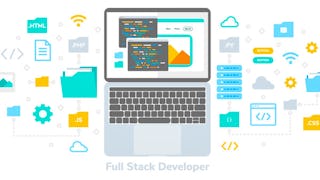Filter by
SubjectRequired
LanguageRequired
The language used throughout the course, in both instruction and assessments.
Learning ProductRequired
LevelRequired
DurationRequired
SkillsRequired
SubtitlesRequired
EducatorRequired
Explore the Biomedical Engineering Course Catalog
 Status: Free TrialStatus: AI skills
Status: Free TrialStatus: AI skillsSkills you'll gain: Email Marketing, Social Media Marketing, Marketing Analytics, Search Engine Marketing, Social Media Strategy, Media Planning, Data Storytelling, Google Ads, Marketing Effectiveness, Social Media Campaigns, Search Engine Optimization, Loyalty Programs, E-Commerce, Online Advertising, Marketing, Marketing Channel, Customer Retention, Campaign Management, Interviewing Skills, Applicant Tracking Systems
 Status: Free Trial
Status: Free TrialL&T EduTech
Skills you'll gain: Engineering Drawings, Technical Drawing, Mechanical Design, Blueprint Reading, Construction Engineering, Design Specifications, Process Flow Diagrams, Hydraulics, Engineering Calculations, Civil Engineering, Construction, Engineering Analysis, Structural Analysis, Thermal Management, Mechanical Engineering, Process Control, Process Analysis, Chemical Engineering, Mathematical Modeling, Process Engineering
 Status: NewStatus: Free Trial
Status: NewStatus: Free TrialSkills you'll gain: Prompt Engineering, Human Centered Design

University of Colorado Boulder
Skills you'll gain: Real-Time Operating Systems, Supervised Learning, Scope Management, Strategic Decision-Making, Systems Engineering, Project Schedules, SQL, Field-Programmable Gate Array (FPGA), Sustainability Reporting, New Product Development, Generative AI, Object Oriented Design, Large Language Modeling, Process Capability, Unified Modeling Language, Data Ethics, Agile Project Management, Unsupervised Learning, Technical Management, Corporate Sustainability
 Status: Free TrialStatus: AI skills
Status: Free TrialStatus: AI skillsSkills you'll gain: Serverless Computing, Software Development Life Cycle, Node.JS, OpenShift, Kubernetes, GitHub, Software Architecture, ChatGPT, React Redux, Web Development Tools, Microservices, Istio, Containerization, React.js, Cloud Computing Architecture, Object-Relational Mapping, CI/CD, Flask (Web Framework), Professional Networking, Web Scraping
 Status: New
Status: NewKhalifa University
Skills you'll gain:
 Status: Free TrialStatus: AI skills
Status: Free TrialStatus: AI skillsSkills you'll gain: CI/CD, Serverless Computing, Open Web Application Security Project (OWASP), Agile Software Development, Software Development Life Cycle, Test Driven Development (TDD), Agile Methodology, OpenShift, Kubernetes, Linux Commands, GitHub, Software Architecture, DevOps, Microservices, Cloud Computing Architecture, Software Engineering, Flask (Web Framework), System Monitoring, Web Scraping, Application Development
 Status: NewStatus: Free Trial
Status: NewStatus: Free TrialSnowflake
Skills you'll gain: Snowflake Schema, Data Pipelines, Data Engineering, Database Management, Data Transformation, Data Manipulation, Data Infrastructure, Data Warehousing, DevOps, Cloud Development, GitHub, Cloud Applications, CI/CD, Data Access, Data Integration, Data Quality, Extract, Transform, Load, Large Language Modeling, Role-Based Access Control (RBAC), Data Analysis
 Status: Free Trial
Status: Free TrialSkills you'll gain: Data Storytelling, Marketing Channel, Digital Marketing, E-Commerce, Performance Measurement, Data-Driven Decision-Making, Marketing, Marketing Strategies, Digital Advertising, Marketing Analytics, Customer Analysis, Search Engine Marketing, Social Media Marketing, Search Engine Optimization, Email Marketing, Target Audience
 Status: Free TrialStatus: AI skills
Status: Free TrialStatus: AI skillsSkills you'll gain: NoSQL, Data Warehousing, SQL, IBM Cognos Analytics, Dashboard, Data Visualization, Apache Spark, Apache Hadoop, Linux Commands, Database Administration, Web Scraping, IBM DB2, Data Pipelines, Database Design, Extract, Transform, Load, Interviewing Skills, Generative AI, Python Programming, Data Science, Data Analysis
 Status: NewStatus: Free Trial
Status: NewStatus: Free TrialVanderbilt University
Skills you'll gain: Prompt Engineering, ChatGPT, Agentic systems, Generative AI Agents, Generative AI, OpenAI, Data Cleansing, Data Ethics, AI Personalization, Excel Formulas, Data Analysis, Artificial Intelligence, Large Language Modeling, Data Processing, Human Machine Interfaces, Software Development, Data Import/Export, Technical Communication, Unstructured Data, Automation
 Status: Free Trial
Status: Free TrialSkills you'll gain: MySQL, Database Management, Version Control, Stored Procedure, SQL, Unix Commands, Databases, Data Modeling, Git (Version Control System), Database Management Systems, Database Design, GitHub, MySQL Workbench, Relational Databases, Star Schema, Tableau Software, Data Visualization Software, Database Administration, Data Structures, Object Oriented Programming (OOP)
Biomedical Engineering learners also search
In summary, here are 10 of our most popular biomedical engineering courses
- Google Digital Marketing & E-commerce: Google
- Design of Industrial Piping Systems: L&T EduTech
- Start Writing Prompts like a Pro: Google
- Master of Engineering in Engineering Management: University of Colorado Boulder
- IBM Full Stack Software Developer: IBM
- Health, Safety, and Environmental (HSE) Engineering: Khalifa University
- IBM DevOps and Software Engineering: IBM
- Snowflake Data Engineering: Snowflake
- Foundations of Digital Marketing and E-commerce: Google
- IBM Data Engineering: IBM










